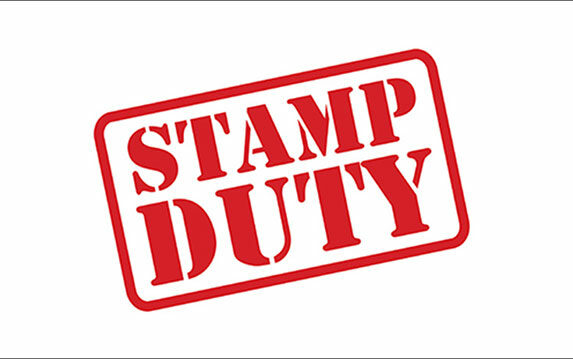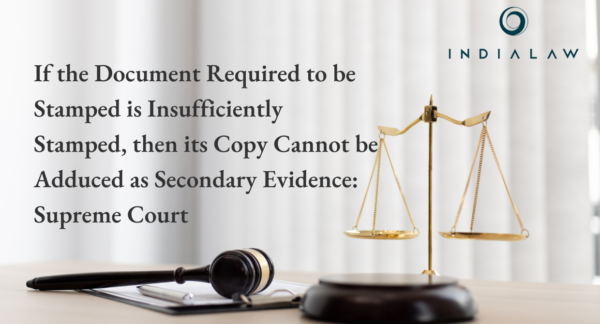The Indian Stamp Act 1899 – Amendments-w.e.f. April 1, 2020


“The amendment propose to create the legal and institutional mechanism to enable states to collect stamp duty on securities market instruments at one place by one agency (i.e. through the Stock Exchanges or Clearing Corporations authorized by the stock exchange or by the Depositories) on one Instrument and subsequent disbursement of the duty collected to the respective states based on state of domicile of the buyer.
The Finance Bill, 2019 (“Finance Bill”), introduced certain amendments to the Stamp Act, 1899 (“Act”) that proposes to streamline the stamp duty regime on financial securities transactions in India. The Ministry of Finance (“Ministry”) has appointed January 09, 2020 as the day on which these proposed amendments shall come into force. Further, the Ministry vide notification dated January 08, 2020 has deferred the effective date of amendments in the Act to April 01, 2020. In this regard, the Ministry has also notified the Indian Stamp (Collection of Stamp-Duty through Stock Exchanges, Clearing Corporations and Depositories) Rules, 2019 (“Rules”) to regulate the centralised mechanism for the collection of stamp duty across the country.
I. Background:
The Constitution of India, by way of the Seventh Schedule, empowers the Union Government and the State Governments to legislate provisions regarding stamp duties. Under Article 246, stamp duties on documents specified in Entry 91 of List I of the Seventh Schedule (‘Union List’) (viz. bills of exchange, cheques, promissory notes, bills of lading, letters of credit, policies of insurance, transfer of shares, debentures, proxies and receipts) are levied by the Union. Stamp duties on documents other than those mentioned above are levied and collected by the States by virtue of the legislative entry 63 in List II of the Seventh Schedule (‘State List’).
Provisions other than those relating to rates of duty (which fall within the scope the Union List and the State List) fall within the legislative power of both the Union and the States under Entry 44 of the Concurrent List in the Seventh Schedule of the Constitution.
The Finance Bill was passed by both the Houses of the Parliament, Lok Sabha and Rajya Sabha, on February 12 and 13, 2019 respectively. It proposed certain amendments to the Act with a view to streamline levy of stamp duties on transactions involving financial securities. The Finance Bill received Presidential assent on February 21, 2019.
II. Amendments in Indian Stamp Act, 1899:
1. Definitions:
Some existing terms have been modified while a few new definitions have been introduced that have become imperative in light of the evolution in the process of financial securities transactions. Following are some of the key definitions:
(a) Instrument:
The definition of ‘instrument’ under has been broadened to further include in its ambit, a document, electronic or otherwise, created for a transaction in a stock exchange or depository by which any right or liability is, or purports to be, created, transferred, limited, extended, extinguished or recorded.
“Instrument” includes—
(i) every document, by which any right or liability is, or purports to be, created, transferred, limited, extended, extinguished or recorded;
(ii) a document, electronic or otherwise, created for a transaction in a stock exchange or depository by which any right or liability is, or purports to be, created, transferred, limited, extended, extinguished or recorded; and
(iii) any other document mentioned in Schedule I, but does not include such instruments as such instruments as may be specified by the Government, by notification in the Official Gazette;
(b) Securities:
The definition of the securities has been widened by including certificate of deposit, commercial usance bill, commercial paper, repo on corporate bonds and such other debt instrument of original or initial maturity upto one year. Now these are also subject to the stamp duty which were earlier out of the purview of the Act.
“Securities” includes—
(i) securities as defined in clause (h) of section 2 of the Securities Contracts (Regulation) Act, 1956;
(ii) a “derivative” as defined in clause (a) of section 45U of the Reserve Bank of India Act, 1934;
(iii) a certificate of deposit, commercial usance bill, commercial paper, repo on corporate bonds and such other debt instrument of original or initial maturity upto one year as the Reserve Bank of India may specify from time to time; and
(iv) any other instrument declared by the Central Government, by notification in the Official Gazette, to be securities for the purposes of this Act;
(c) Debenture:
Under the existing Act, only debentures which were ‘marketable securities’ were liable to be stamped under Article 27 of Schedule I to the Act. The revised schedule to the Act also seeks to levy stamp duty on all types of debentures, whether they are listed or unlisted.
“Debenture” includes—
(i) debenture stock, bonds or any other instrument of a company evidencing a debt, whether constituting a charge on the assets of the company or not;
(ii) bonds in the nature of debenture issued by any incorporated company or body corporate;
(iii) certificate of deposit, commercial usance bill, commercial paper and such other debt instrument of original or initial maturity upto one year as the Reserve Bank of India may specify from time to time;
(iv) securitised debt instruments; and
(v) any other debt instuments specified by the Securities and Exchange Board of India from time to time;
2. Stamp Duty for Transfer of Securities in Dematerialised Form:
Transfer of dematerialised securities between beneficial owners was earlier exempted from stamp duty provisions under section 8A(c)(ii) & (iii) of the Act. Section 8A of the Act has been amended such that the exemption available for transfer of Securities from a person to a depository or from a depository to a beneficial owner has been removed.
3. Collection of Stamp Duty for Transfer of Securities in Dematerialised Form:
The proposed introduction of a separate regime for collection of stamp duty on Securities transactions in Dematerialised form is a key change for stock exchanges, clearing corporations and depositories. A new section, Section 9A, has been introduced under which the stamp duty in case of sale, transfer and issue of Securities, must be collected on behalf of the State Government through the below mentioned agencies.
(i) In cases of transfer of Securities through the stock exchange, the stock exchange or a clearing house authorised by it will be liable to collect stamp duty from the buyer of the Securities at the time of settlement of the transaction.
(ii) In cases of transfer of Securities in dematerialized form (other than through stock exchanges), the concerned depository will be liable to collect stamp duty from the transferor at the time of the transfer.
(iii) In cases of issue of Securities in dematerialized form which leads to a change or a creation in the records of the depository concerned, the concerned depository will be liable to collect stamp duty from the issuer.
4. Change in Rates of Stamp Duty:
| Type of Instrument | Rate |
| DEBENTURE | |
| Issue of debenture | 0.005% |
| Transfer and re-issue of debenture | 0.0001% |
| SECURITIES | |
| Issue of security other than debenture | 0.005% |
| transfer of security on delivery basis | 0.015% |
| transfer of security on non-delivery basis | 0.003% |
| DERIVATIVES | |
| Futures (equity and commodity) | 0.002% |
| Options (equity and commodity) | 0.003% |
| Currency and interest rate derivatives | 0.0001% |
| Other derivatives | 0.002% |
| Government securities | 0% |
| Repo on corporate bonds | 0.00001% |
5. Onus of Stamp Duty payments
Section 29 of the Act is amended to set out the responsibility of the party who will be liable to bear the stamp duty, in the absence of an agreement to the contrary. It sets out responsibility of relevant party to a transaction for payment of applicable stamp duty as follows:
| Nature of Transaction | Onus |
| Sale of security through stock exchange | Buyer[1] |
| Sale of security otherwise than through a stock exchange | Seller[2] |
| Transfer of security through a depository | Transferor |
| Transfer of security otherwise than through stock exchange or depository | Transferor |
| Issue of security, whether through a stock exchange or a depository or otherwise | Issuer |
| In case of any other instrument not specified in Section 29 of the Act | Person making, drawing or executing such instrument |
III. Key Takeaways:
The amendments propose a uniform system for collection and payment of stamp duty on the issue and transfer of securities. This will bring uniformity and affordability in the stamp duty across states and is expected to reduce the instances of tax evasion. Further, cost of collection would be substantially minimized while revenue productivity will be enhanced. Furthermore, the amendments are likely to dispense the concept of forum shopping of jurisdictions where instruments were stamped in states with lower duty rates.
[1] As per the Rules “buyer” means,-
(i) the person purchasing securities; or
(ii) the person buying the base currency (the first currency appearing in a currency
pair quotation) in the forward leg; or
(iii) the person paying the fixed rate in a fixed-floating swap instrument; or
(iv) any one of the contracting persons in a floating-floating swap instrument; or
(v) borrower of repo on corporate bonds;
[2] As per the Rules “seller” means the counter-party in a transaction with the buyer;




